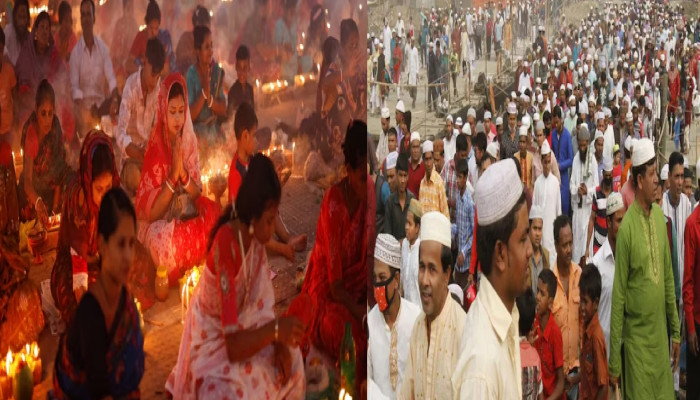Bangladesh Attorney General backs removing 'secular' from Constitution, citing 90% Muslim majority
- In Reports
- 06:01 PM, Nov 14, 2024
- Myind Staff
The Attorney General of Bangladesh, Md Asaduzzaman, has suggested making significant changes to the Constitution, including removing the word "secular," since "90% of the country's population is Muslim," according to a report by India Today.
During a court hearing on the legality of the 15th Amendment, Asaduzzaman argued that amendments should strengthen democracy, not lead to authoritarianism, before Justices Farah Mahbub and Debashish Roy Chowdhury. “Earlier, there was constant trust and faith in Allah. I want it the way it was before. It is said in Article 2A that the state shall ensure equal rights and equality in the practice of all religions. Article 9 talks about 'Bengali nationalism'. It is contradictory,” said he.
Additionally, the Attorney General contended that a number of constitutional changes, including designating Sheikh Mujibur Rahman as the "Father of the Nation," contribute to national division and limit freedom of speech. He acknowledged, "Honouring the contributions of Sheikh Mujib is vital," but cautioned, "enforcing it by law creates division." Asaduzzaman called for changes that align with democratic values, the Liberation War, and national unity. He urged the court to review whether the 15th Amendment is constitutional.
He also expressed disapproval of Articles 7A and 7B, which prohibit any constitutional amendments that would "subvert democracy," contending that they impede democratic reforms and consolidate political authority. "It is done to prolong the dictatorship for ulterior motives. It is antithetical to the rule of law," he stated. Asaduzzaman criticised the removal of the caretaker government system, which was previously in charge of overseeing elections. He argued that getting rid of this system violated people's basic rights, reduced public trust, and damaged the democratic foundations of Bangladesh.
In his closing remarks, Asaduzzaman demanded that the 15th Amendment be repealed, claiming that it violates the "spirit of the Liberation War" and the democratic movements of the 1990s and disturbs Bangladesh's history of independence. This month, tens of thousands of minority Hindus in Bangladesh held protests, calling on the interim government to protect them from a rise in attacks and harassment. Around 30,000 people gathered in Chattogram, demanding their rights, while police and military forces ensured security in the area. Similar protests took place across the country.
Since early August, after Prime Minister Sheikh Hasina’s secular government was overthrown by a student-led movement, Hindu groups have reported thousands of attacks against them. However, the interim leader and Nobel Peace Prize winner, Muhammad Yunus, has stated that these figures are exaggerated. Hindus make up about 8% of Bangladesh’s population of nearly 170 million, and the Bangladesh Hindu Buddhist Christian Unity Council reports more than 2,000 attacks on Hindus since August 4. The new government is struggling to restore order.
Recently, there have been reports of arson in Chattogram, where homes and shops belonging to tribal communities were destroyed. In response, India has urged the Bangladeshi government to protect its Hindu minority. Tensions have risen after a clash between the Hindu community and law enforcement in Chattogram over a Facebook post criticising ISKCON. Calls to ban ISKCON in Bangladesh have further fuelled the growing conflict between religious groups in the country.







Comments